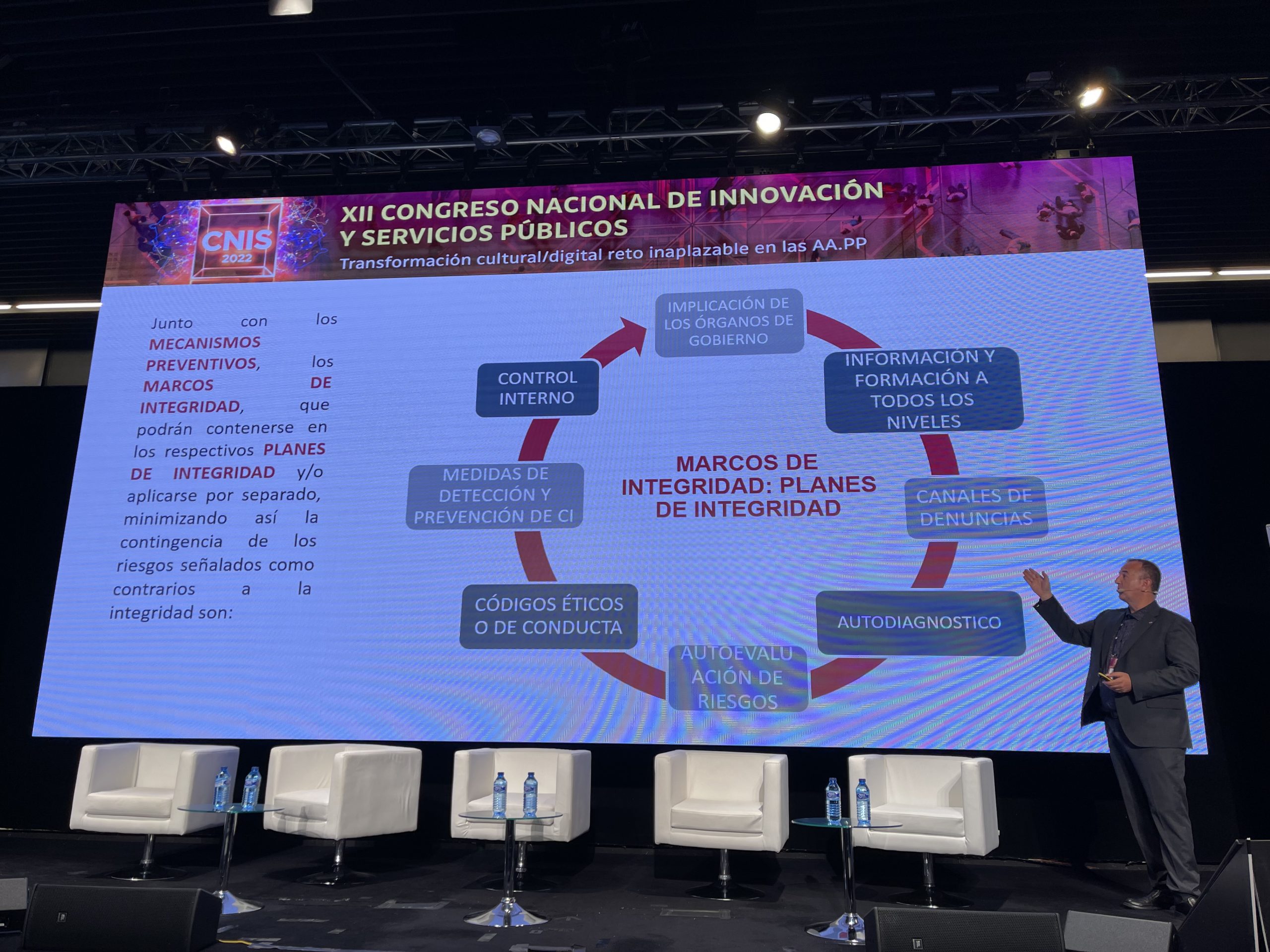#TrainingAVAF
The director of Prevention, Training and Documentation of the Valencian Anti-Fraud Agency, Víctor Almonacid Lamelas, participated in the 2022 Congress of Innovation and Public Services with a presentation at the La Nave auditorium (Madrid) , on December 13, 2022.
Corruption as a problem-generating phenomenon for the quality of democratic institutions and the stability and security of society was the beginning of Víctor Almonacid’s presentation “From strict compliance with the law to the development of a culture of public ethics.”
The main room of the CNIS hosted the exhibition that showed corruption as a real and permanent risk in the exercise of public powers, as well as the need to implement a public integrity strategy, the first step of which is the identification of risks.

The Director of Prevention, Training and Documentation of the Valencian Anti-Fraud Agency stressed that not identifying and not managing corruption risks increases the chances that a manager or public servant will carry out or tolerate conduct contrary to integrity and public ethics.
Together with preventive mechanisms, integrity frameworks minimize the contingency of risks contrary to integrity.
The opportunity to promote integrity in public administrations has come from the European Union and its concern about how the budget is managed.
The integrity frameworks that develop anti-fraud plans require the involvement of government bodies, as well as information and training at all levels of the organization. The complaints channels (internal and external) are part of the integrity system along with the necessary self-diagnosis of the institution and self-assessment of risks. Codes of ethics or conduct together with IC detection and control measures and internal control close the circle of the necessary integrity frameworks for public administration.
The opportunity to promote integrity in public administrations has come from the European Union and its concern about how the budget is managed.
The event, of a national character, brought together 800 participants, public employees of the local, regional and state administration, of the most varied profiles, experts in electronic administration, data protection, innovation, open data, contracting, transparency and accountability, among others.
We want to thank everyone present in the auditorium and the CNIS organization for their interest in the culture of public integrity, since only with their help can progress be made in the transformation of public administration.




 The Directorate of Legal Affairs, led by Juan Vega Felgueroso, a lawyer for the Agency, explained the work in terms of protection of corruption whistleblowers and legal advice carried out by the AVAF. The Agency’s lawyer highlighted the paradigm shift brought about by Directive (EU) 2019/1937 on the protection of persons who report violations of Union Law and the bill that will transpose said directive. And in the debate, the emphasis was placed on the fact that all public administrations should soon have internal and external alert channels.
The Directorate of Legal Affairs, led by Juan Vega Felgueroso, a lawyer for the Agency, explained the work in terms of protection of corruption whistleblowers and legal advice carried out by the AVAF. The Agency’s lawyer highlighted the paradigm shift brought about by Directive (EU) 2019/1937 on the protection of persons who report violations of Union Law and the bill that will transpose said directive. And in the debate, the emphasis was placed on the fact that all public administrations should soon have internal and external alert channels.












